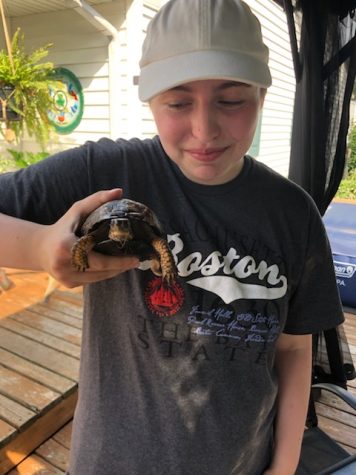No Snow: Climate Change is Happening Now
March 26, 2023
/cloudfront-us-east-1.images.arcpublishing.com/pmn/PZOUPJY4QFDRHD2EC2NLP6J3IU.jpg)
March 20 marked the first day of spring this year—winter is over. That is, if whatever happened from December to March can be considered ‘winter.’
The grand total of accumulated snow that Philadelphia got this year was… drumroll please… 0.3 inches. Yes, not 30, or even 3—just 0.3, a fraction of an inch. This was recorded by the National Weather Service at the Philadelphia International Airport on Wednesday, February 1st.
The latest ever first snow of the season on record is Feb, 3, 1995. That means this year was just 2 days off from setting records.
The tiny amount of snow we received this year can be explained by several factors. First of all, the La Niña cooling of the pacific waters has been occurring for the past year and a half, and has just ended this March. La Niña results in changes in climate around the entire world, but for us here in the Northeast, a strong La Niña event is linked with less-than-normal levels of snow.
Secondly, the polar vortex, a low-pressure area of air surrounding the northern Arctic region, was extremely strong this winter, meaning lots of the coldest air was trapped up in the Arctic instead of being brought down to New England and other Northeastern states.
While we may be tempted to explain our warm winter with just these two short-term factors, climate change and the warming of our planet are also playing a role. Five of our top 10 warmest winters in Pennsylvania have occurred within the last 22 years, for example, a sign that our winters are becoming warmer. Average winter temperatures across the United States have increased by 3.2°F since 1970, says research group Climate Central.
Just two years ago, our website had an article about bringing back snow days instead of using Teams. However, there have been a grand total of… 0 snow days this winter. With this pattern of warmer winters and less snow, is there any guarantee that snow days are going to continue to be a common occurrence in winter?
Not only has there been no sledding this year for the children of Doylestown, but there has been shortages of snow in ski areas in Pennsylvania, forcing them to create their own, resulting in lost money and energy.
The ramifications of climate change are numerous—ocean acidification, leading to the loss of marine life and coral reefs, valuable sources of food and income for many. The melting of the polar ice caps, which not only destroys habitat for animals but also raises our sea levels and is in the process of flooding cities. More severe storms, drier droughts, and stranger weather patterns… such as warmer winters in one area (Northeast), and colder ones in another (West).

What are things we can do slow down this rapid change from happening? The obvious things to consider would be using less energy in your home, switching to renewable energy, or carpooling more often to save gas. One major thing to do that many don’t consider is limiting your beef intake, or even becoming vegetarian. Cows emit methane gas, which contributes to global warming, and also uses up lots of land: 26% of land is used for livestock grazing and 33% of croplands are used as food for the livestock. This means we could convert lots of land to forest and combat world hunger at the same time: a win-win!
The trees have already budded, and it seems there will be no snow days, no sledding, and no snowmen in Doylestown this year, just a couple days with some flurries or mixes of rain and snow. Climate change is increasingly become ‘real’ to the average person. What kind of a world do we want to live in: a storm-riddled, flooded one without snow? Or one with rich diversity of plants and animals, normal weather patterns, and beautiful snow-draped landscapes?

